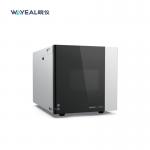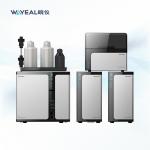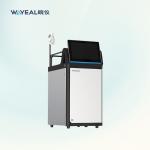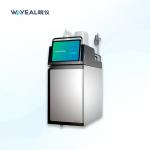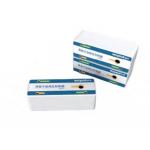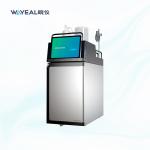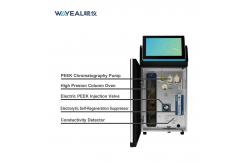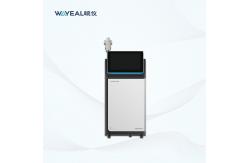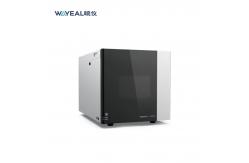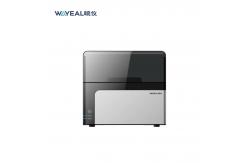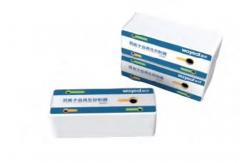Technical Datas of Ion Chromatography Instrument | Product Name | IC6200 Ion Chromatography Instrument | | System Parameters | | | Qualitative repeatability | ≤0.5% | | Quantitative repeatability | ≤1.0% | | Pump System | | | Pump material | PEEK | | Pump flow rate | (0.001~10.000) mL/min | | Pump head pressure resistance | (0 ~ 35) MPa | | Flow rate setting inaccuracy | <0.1% | | Flow stability | <0.1% | | Pressure display accuracy | 0.01Mpa | | Pressure pulsation | <0.5% | | Conductivity Detector | | | Baseline noise | ≤0.1%FS | | Baseline drift | ≤0.5%FS | | Minimum detectable concentration (Cl) | ≤ 0.0002ug/mL | | Minimum detection concentration (Li) | ≤ 0.0001ug/mL | | Conductivity cell volume | ≤ 0.6μL | | Conductivity detection range | 0-15000μS/cm | | Detector resolution | 0.00238nS/cm | | Conductivity cell temperature setting error | ±0.01°C | | Suppressor | | | Constant current source range | 0~500mA in 0.1mA increments | | Column Oven | | | Temperature range | room temperature: +5°C~85°C | | Control temperature stability | ≤ 0.1°C | | Autosampler | | | Injection Bits | 48/120 | | Refrigeration temperature range | 4-30°C | | Repeatability | Full loop injection < 0.3% RSD, Partial injection < 0.5% RSD, Non-destructive injection < 1 % RSD (injection volume > 5uL) | | Linearity | >0.999 | | Cross-contamination | <0.01% | | Eluent Generator | | | Flow rate range | 0.001~3.000mL/min | | Software | Self-developed SmartLab |
Performance of Ion Chromatography Instrument
1. Liquid leakage alarm
2. Automatic range detector
3. Peristaltic pump post-pump cleaning function
4. High resolution 10-inch touch screen
5. Simple piping layout
6. Consumables ID identification and life monitoring
7. High-pressure flow path automatic emptying, reducing the manual
operation of the experimenter. Application of Ion chromatography Instrument in the Pharmaceutical Industry 1. Active Pharmaceutical Ingredient (API) Analysis Counterion Analysis: Many APIs are synthesized as salts to improve solubility,
stability, or bioavailability. IC is used to quantify counterions
such as chloride, sulfate, phosphate, and sodium, ensuring the
correct stoichiometry of the drug substance. Ionic Impurities: IC helps detect and quantify ionic impurities in APIs, which can
arise from raw materials, synthesis processes, or degradation.
Examples include halides (e.g., bromide, iodide) and sulfates.
2. Excipient Analysis Ionic Excipients: Excipients such as buffers, stabilizers, and preservatives often
contain ionic components (e.g., citrate, acetate, phosphate). IC is
used to quantify these ions to ensure proper formulation and
stability. Impurity Profiling: IC can detect trace levels of ionic impurities in excipients,
which could affect drug efficacy or safety.
3. Drug Product Analysis Formulation Analysis: IC is used to analyze the ionic composition of drug formulations,
including oral solutions, injectables, and topical products. This
ensures the correct concentration of active and inactive
ingredients. Preservative Analysis: IC quantifies preservatives such as benzoates, sorbates, and
parabens in drug products to ensure they are within acceptable
limits. Buffer Systems: IC is used to monitor buffer systems (e.g., phosphate, acetate,
citrate) in liquid formulations, ensuring proper pH control and
stability.
|
